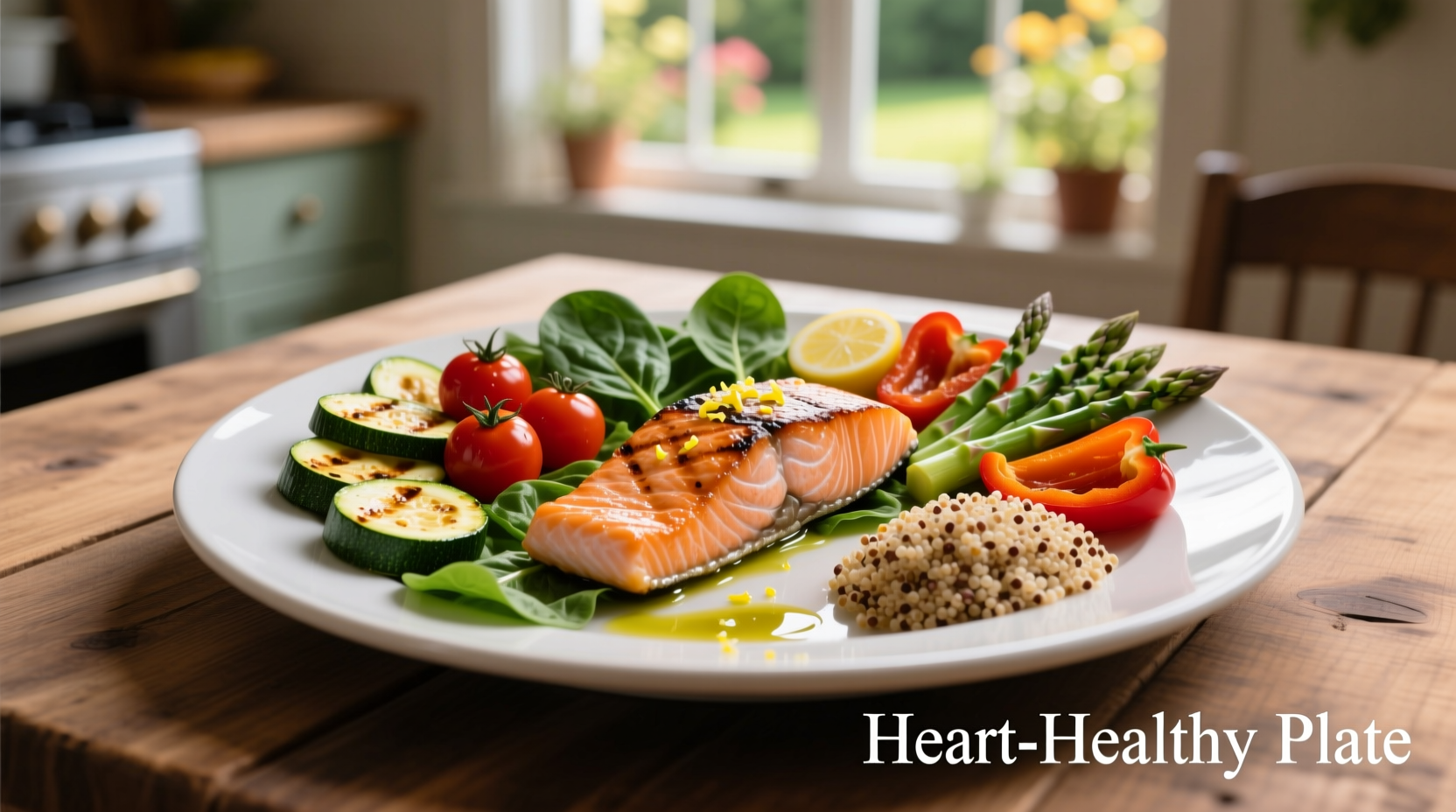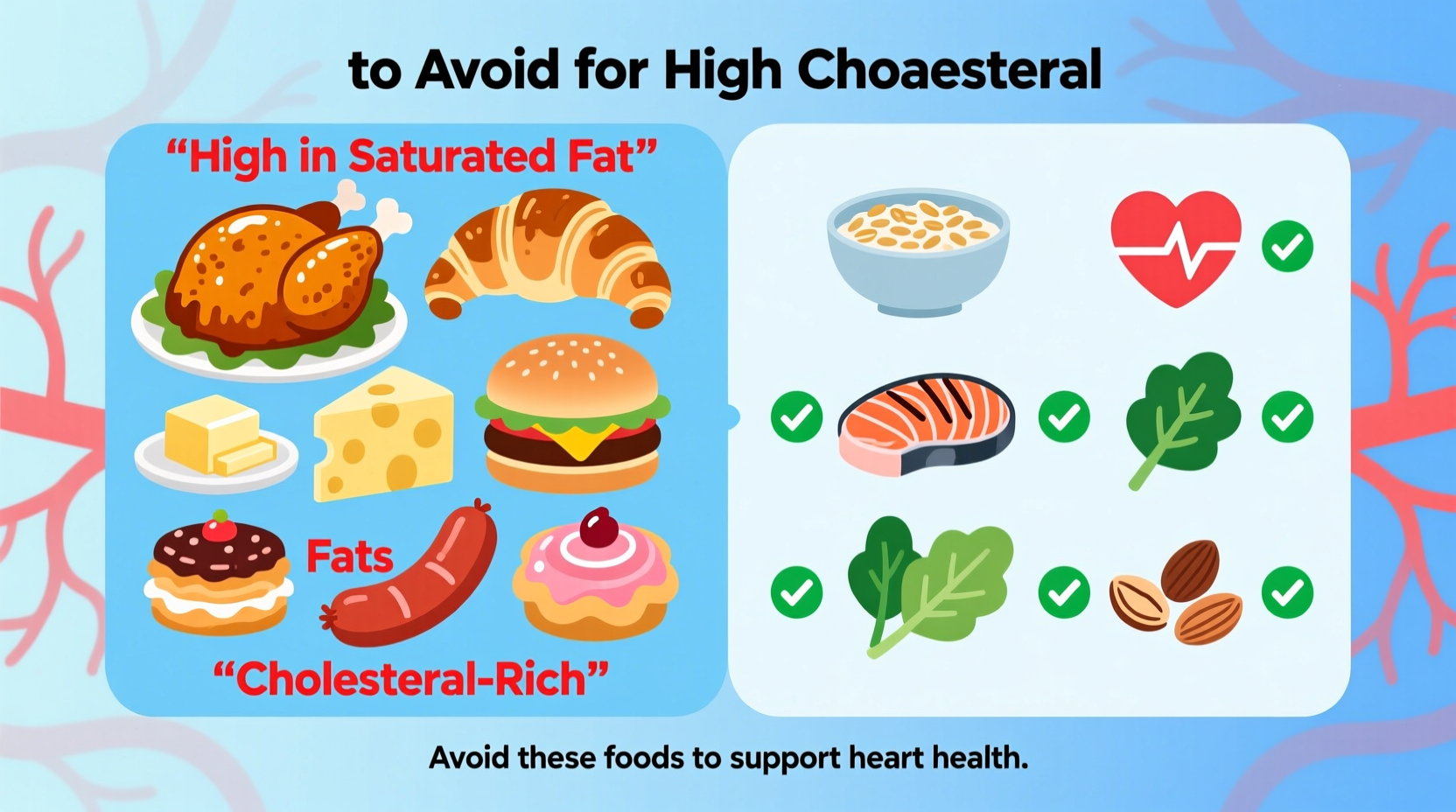When your doctor mentions high cholesterol, your immediate concern is likely: What should I eat—and what must I avoid? This guide delivers science-backed answers you can trust, with specific foods to eliminate from your diet and practical swaps that actually work. We've analyzed the latest research from leading health institutions to create the most actionable list available online.
Your Quick Reference Guide to Cholesterol-Worsening Foods
| Foods to Avoid | Why It's Harmful | Better Alternatives |
|---|---|---|
| Fried foods (french fries, fried chicken) | High in trans fats from repeated oil heating | Air-fried or baked versions with olive oil |
| Processed snacks (chips, crackers) | Often contain partially hydrogenated oils | Unsalted nuts or vegetable sticks with hummus |
| Fatty red meats (ribeye, bacon) | Saturated fat raises LDL cholesterol significantly | Lean poultry, fish, or plant-based proteins |
| Full-fat dairy (whole milk, butter) | Naturally high in saturated fats | Low-fat dairy or plant-based alternatives |
| Baked goods (donuts, pastries) | Trans fats from shortening and margarine | Oat-based muffins with minimal added sugar |
Why Certain Foods Worsen Cholesterol Levels
Understanding the science behind cholesterol-impacting foods helps you make informed choices. Your liver naturally produces cholesterol, but certain dietary components trigger it to overproduce LDL (low-density lipoprotein), the "bad" cholesterol that builds up in arteries.
Two primary dietary culprits elevate cholesterol:
- Saturated fats - Primarily found in animal products and some tropical oils, these fats signal your liver to produce more LDL cholesterol
- Trans fats - Mostly artificial fats created through hydrogenation, these are particularly dangerous as they both raise LDL and lower HDL ("good") cholesterol
The American Heart Association recommends limiting saturated fats to no more than 5-6% of daily calories. For a 2,000-calorie diet, that's about 13 grams maximum per day. Trans fats should be avoided completely when possible.
Cholesterol Research Timeline: How Our Understanding Has Evolved
Cholesterol research has undergone significant shifts that affect today's dietary recommendations:
- 1980s-1990s: Focus primarily on reducing all dietary cholesterol (like egg yolks), with less emphasis on fat types
- Early 2000s: Recognition that saturated fats have greater impact on blood cholesterol than dietary cholesterol itself
- 2013-2015: FDA begins requiring trans fat labeling and eventually bans partially hydrogenated oils in processed foods
- Present day: Emphasis on overall dietary patterns rather than single nutrients, with Mediterranean diet emerging as gold standard
This evolution explains why older advice about avoiding all cholesterol-containing foods has been updated. Current science shows that for most people, saturated and trans fats affect blood cholesterol more significantly than dietary cholesterol from whole foods.
Practical Implementation: Making Sustainable Changes
Eliminating problematic foods doesn't mean sacrificing flavor or satisfaction. Consider these evidence-based strategies:
Smart Swaps for Common Problem Foods
Instead of butter on your morning toast, try mashed avocado or a light spread of almond butter. When craving fried foods, use an air fryer with a spray of olive oil for that crispy texture without the harmful fats. For creamy pasta sauces, blend soaked cashews with nutritional yeast instead of heavy cream.
Reading Labels Like a Pro
Check ingredient lists for "partially hydrogenated oils"—the primary source of artificial trans fats—even if the label claims "0g trans fat." Food manufacturers can list 0g if each serving contains less than 0.5g, but multiple servings add up quickly. Also watch for "shortening" and "hydrogenated" oils.
Context Matters: When Some Fats Are Acceptable
Not all saturated fats carry equal risk. Recent research from Harvard T.H. Chan School of Public Health suggests that saturated fats from dairy might have different effects than those from processed meats. While coconut oil is high in saturated fat, some studies indicate its medium-chain triglycerides may metabolize differently. However, for those with existing high cholesterol, it's still prudent to limit all saturated fats according to current guidelines.

Common Misconceptions About Cholesterol and Food
Several persistent myths can lead to poor dietary choices when managing high cholesterol:
- Eggs are completely off-limits: For most people, one whole egg daily is acceptable. The dietary cholesterol in eggs has less impact than saturated fats. Those with diabetes or very high cholesterol may need stricter limits.
- All fats are bad: Monounsaturated and polyunsaturated fats actually improve cholesterol profiles. Avocados, olive oil, and fatty fish provide these beneficial fats.
- Only red meat affects cholesterol: Processed poultry products like chicken nuggets often contain just as much saturated fat as red meat due to preparation methods.
Tracking Your Progress: What to Expect
After eliminating the worst cholesterol-raising foods, most people see improvements within 4-12 weeks. The National Lipid Association reports that dietary changes alone can reduce LDL cholesterol by 10-15% in this timeframe. Combine these dietary changes with regular exercise for even better results.
Remember that individual responses vary based on genetics, existing health conditions, and overall dietary patterns. Work with your healthcare provider to monitor your specific progress through blood tests.
When to Consult a Professional
If you've made consistent dietary changes for 3 months without improvement in your cholesterol levels, consult a registered dietitian specializing in cardiovascular health. They can provide personalized guidance based on your specific health profile and genetic factors that might affect your cholesterol metabolism.











 浙公网安备
33010002000092号
浙公网安备
33010002000092号 浙B2-20120091-4
浙B2-20120091-4